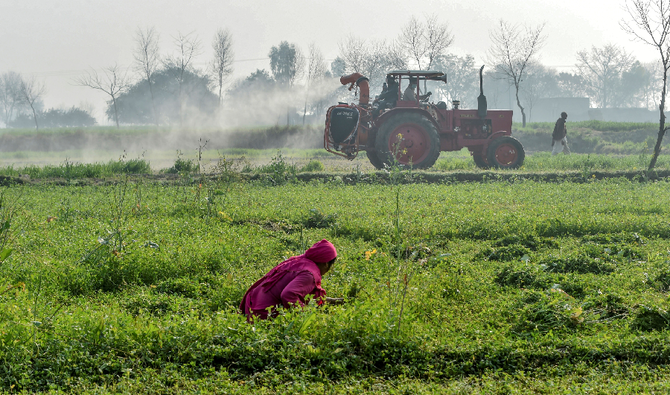Turning Pakistan’s Agriculture into a Modern Sector

A policy webinar on the food security of Pakistan: Policy Practices for Technology Diffusion was held on Wednesday. The actionable policy measures that can transform the agriculture of Pakistan from a traditional sector to an innovative, value-added, and export-oriented sector were discussed by panelists from Pakistan and China.
The seminar aims at devising the agriculture technology framework and its application at farm level by the farmers and other actors of the agriculture value chain to make the agriculture sector more productive and competitive. Presenting the background of Pakistan’s agriculture, Rashid Aftab, Director, Public Policy, Riphah International University, maintained that agriculture plays a vital role in the economy of Pakistan and its development. 48% of the labor force is engaged directly in agriculture. Green revolution technology in irrigation, improved seeds, and fertilizers played a very vital role in increasing the agricultural production which results in the increase of GDP.
Mr. Wang Qian, Director of Center for China Agricultural Technology, Tanzania highlighted that how to solve the last mile problem in the application of agriculture technology is an issue of great concern to everyone. Through case sharing, people can understand the importance of technology demonstration, he suggested Pakistan to refer to the Technology Promotion Mode in policy.
“In the form of project support, the government can set up a ‘village-based technology team’ presided over by agricultural universities in the advantageous industrial areas. In this way, it is easy to solve the problem of knowledge and human sources needed for technology dissemination.” Mr. Wang Qian explained that, “the upstream participating institutions include agricultural scientific research institutions, science and technology enterprises, etc. While downstream participating institutions include farmers, farmers’ organizations, shopping malls, processing trade enterprises, etc.”
Introducing the desert solization technology, Prof. Wang Min, Associate Professor, Chongqing Jiaotong University stated that the desert soilization technology is the result of a research lasting for over 12 years led by Professor Yi Zhijian from Chongqing Jiaotong University. “With adequate assessment of environment and water resources, the desert with access to water can be soilized to restore the ecology, improve the climate and environment, and optimize the land use condition. For the prospect of desert solization in Pakistan, consideration should be given to whether it is necessary to use the desert solization technology and whether water can be available inthe deserts.”
Mr. Rehmat Ullah, Director of CICS, USKT, ED IRP pointed out that Pakistan needs an entrepreneurial agriculture sector that can proactively adopt new technologies, invest in new technologies and innovate its products and processes to stay competitive in the global market. Entrepreneurial agriculture can overcome the food security risk of Pakistan, feed the growing population, and earn foreign reserves through exports. “Pakistan sets a target of USD 100 billion export of agriculture products by developing it as an entrepreneurial sector. There are three main components of entrepreneurial agriculture: technology adoption, technology diffusion and technology development.” he concluded.
Representatives from various institutions and enterprises including Indus Pak Corporation, Ignite etc exchanged their views on the topic as well.


